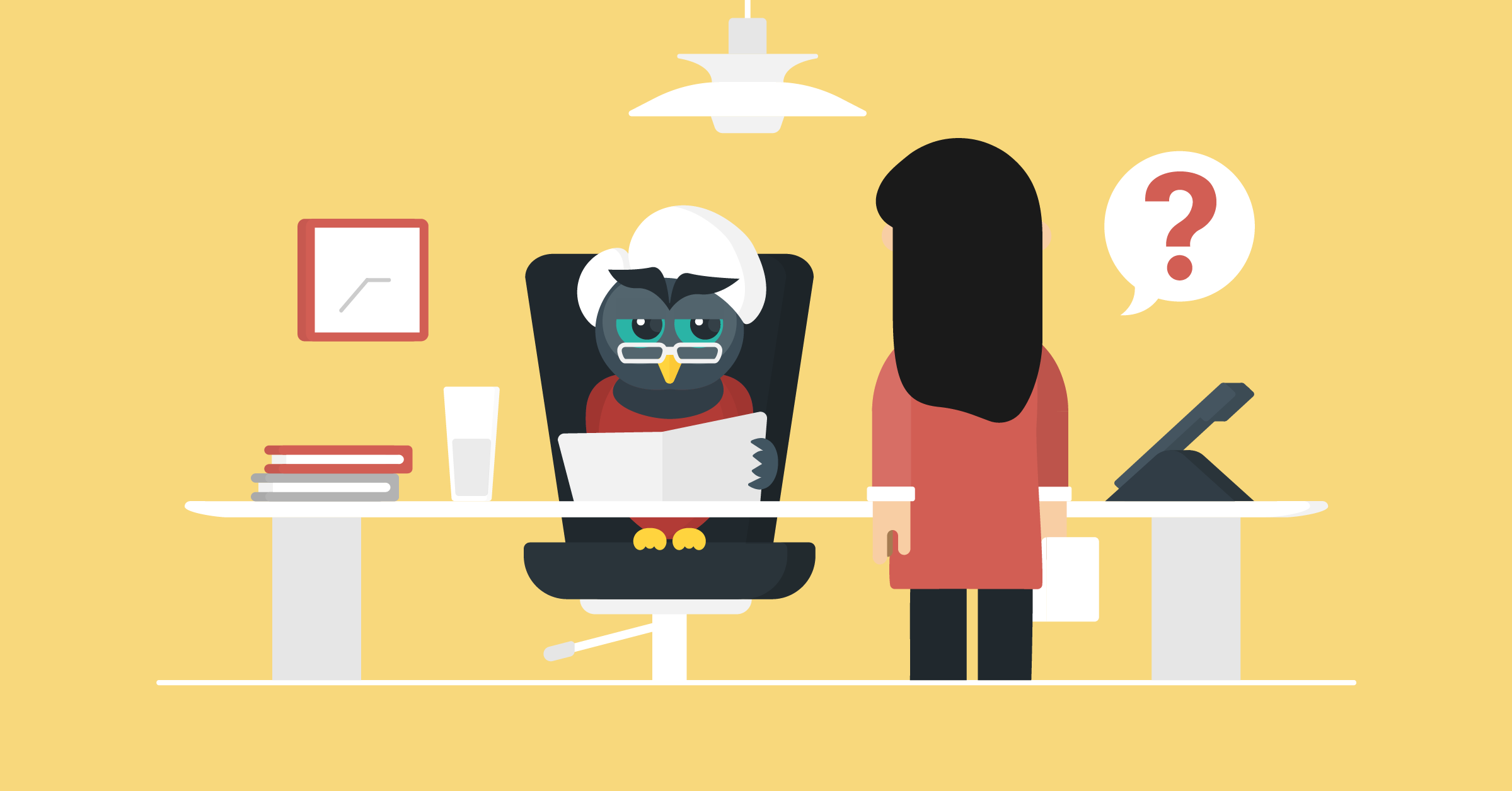My first professional job interview was when I was 18 years old. As a first-year business student, I wanted to gain experience working in an office environment, so I tried to get an
admin job in an insurance firm.
Heading into the interview, I was worried about my lack of relevant experience. Still, as the interview wore on, I built a convincing case for how the
skills I had gained through school and working in a customer service role made me a fit for the position.
After about 30 minutes we reached the end of their question line. The interviewers shuffled their papers in front of them, and one of them said, “Is there anything you’d like to ask us?”
I knew enough not to ask what salary they were offering. It didn’t even matter to me since my primary goal was to gain some relevant business experience.
But I hadn’t given much thought to what I wanted to learn from the meeting. Wasn’t the purpose for them to interview me?
So I responded with something like “Uhhh…not really.”
I didn’t get the job.
Now, I can’t say for sure that it was my lack of intelligent questions that prevented me from getting the job. But I’m sure it didn’t help.
Many years later, I’ve had the
chance to interview for several positions, and I have been on the opposite side of the table by interviewing candidates. Through both perspectives, I’ve learned that the job interview is not, and should not, be one-sided. It’s really like going on a first date.
Conversation Not Interview
The
purpose of an interview isn’t only to put the candidate on the hot-seat. Yes, the pressure to perform falls unequally on the person seeking a job, but, ultimately, it’s an opportunity for both sides to learn from one another. As a candidate, this means you should be ready to both
answer questions and ask them.
This may seem obvious to you. Unlike the 18-year-old version of myself, you have probably already interviewed for a job and know that towards the end of the interview you are given a chance to ask questions.
Less obvious are the types of questions you should ask. Here it’s important to remember the three goals you should have for the interview:
- Demonstrate your interest in the role and the company
- Persuade the potential employer that you have the skills and experience they seek
- Identify if the job and the organization is the right fit for you.
The questions you ask can serve all three goals. However, I want to stress that it’s not just what you ask, but how and when you ask it. Be strategic. In line with goal #1 above, you want the interviewer to perceive you as genuinely curious. If you simply ask out of formality, it will show.
For this reason, go into the
interview with questions that you should ask and that you could ask. The difference being certain questions are context-dependent based on what you’ve discussed throughout the interview. Here’s what I mean.
Job Interview Questions You SHOULD Ask the Interviewer
Job Interview Questions You COULD Ask the Interviewer
By no means is this an exhaustive list. There are plenty of other strategic questions you can ask during the interview. But the ones listed above will provide you with a solid base for impressing interviewers and determining whether the role you are pursuing is right for you.
Now that you have learned some tips for the job interview, it is time to start applying for your dream job. Make sure to update your resume template for each job application you are creating. You can use our
free resume builder to create a new job application or update your existing one.
Suggested reading:

